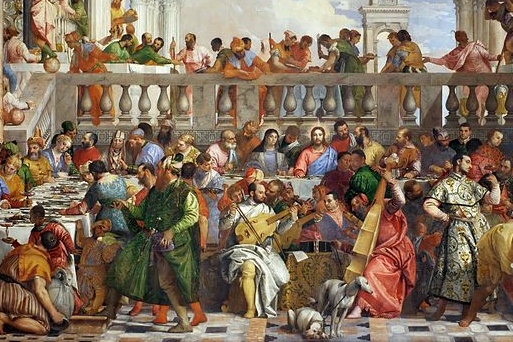Was Jesus an environmentalist? Did he die a virgin? Did he even exist? A new book takes stock of controversies surrounding Christ. Two of its authors, theologians Anne-Marie Chapleau and Sébastien Doane of Laval University, answer our questions.
Anne-Marie Chapleau: It’s a book to allow people to abandon an overly literal or infantilizing reading, not to get entangled in historical questions. I use an analytical approach called semiotics. We consider the text as a building in which we can enter, which we can visit. A bit like the analyzes of poems, one wonders what the different aspects of the text evoke.
Sébastien Doane: A while ago, I worked in a secondary school. The teenagers were not interested in the Bible, but still asked questions about funny, curious or unusual events in the history of Jesus.
SD: There are several mentions of Jesus by later authors who therefore did not know him directly. If we question the existence of Jesus, we should also question that of Socrates or Plato.
SD: The New Testament begins with a genealogy of Jesus which is the reverse of a holy history. There are kings who have killed their children, women who cause scandal. The church fathers explained that Jesus saves us from sinners. I think they are more stories of hope, which show that we can always get by even if we are in seemingly hopeless situations. As for the four brothers and sisters of Jesus mentioned in the Bible, they are important because they do not become the successors of Jesus. His half-brother Jacques becomes an arbiter between Peter and Paul, but Jesus wants to transcend the tradition of the clans. Traditionally, we did not speak of the siblings of Jesus to preserve the virginity of Mary.
SD: There is nothing historical about his relationship with Mary Magdalene depicted in The Da Vinci Code. It’s based on a single document written 200 years after Jesus died. There are few single, chaste men in the Bible. Jeremiah’s celibacy reflects the drama of exile in Babylon. But when Jesus speaks of eunuchs in the Kingdom of Heaven, it is positive. It can mean the radical choice to choose the faith, or the tradition of service of the eunuchs, who were often civil servants, or even the affection for the marginalized.
AMC: There’s a wonderful side to stories like Cana. After the miracle of Jesus, we regret that the good wine was kept for the end of the meal. The Greek verb that is translated as “keep” does not exist in English, it means: “you kept and you always keep”. It has a spiritual meaning. It is often found in the Gospel according to John. Everything converges towards Jesus on the cross. The wedding at Cana is mentioned as taking place “on the third day”. It is the same number of days as between the crucifixion and the resurrection. There are six jars of wine. Six is one less than seven, a number that is associated with being complete.
AMC: I’m very interested in environmental causes. But it is an anachronism to ask the question. In Palestine, there was no green party. And at different times, Jesus doesn’t seem very sensitive to animal and plant welfare. He is not moved by the phenomenal number of sacrifices of lambs and oxen. Jesus sends thousands of pigs, where the spirits of the possessed have been moved, to drown in the sea. And he curses a fig tree which the next day is completely dry. Jesus is angry because the fig tree has no fruit, it is not the season. If we step back a bit, we can wonder what symbol is behind the fig tree. In some passages of the Gospels, a tree is a perch, in other cases, the link between heaven and earth. Here, the fig tree becomes definitively sterile. We must compare this passage with the criticism of the sterility of the priests of the Temple who seem to carry out a spiritual task, but ultimately only care about their own interests. Jesus reveals their sterility, like that of the fig tree.















